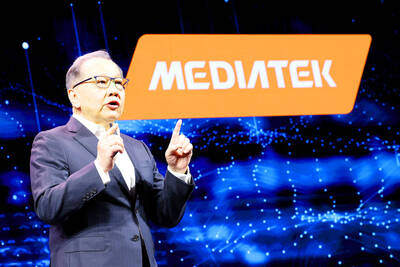Burberry investors showed their displeasure at the multimillion-dollar pay package of the luxury brand’s boss Christopher Bailey on Friday, joining wider disquiet surfacing at some of the UK’s leading businesses.
In a still-rare rebuke for a London FTSE 100 index of leading shares-listed company, 52.7 percent of the votes cast in a ballot at Burberry’s annual shareholders’ meeting in London opposed the board’s remuneration report.
Though the vote was non-binding, business lobby group the Institute of Directors said that Burberry investors had “fired a warning shot” at the meeting.
“If the board does not react in a constructive way to investor concerns, there is a real risk that shareholders will feel compelled to use their new binding powers at next year’s annual general meeting,” it said.
Encouraged by politicians, shareholders across all industries are starting to flex their muscles again.
New regulations came into force in October in relation to the reporting on directors’ remuneration, which require the policy to be subject to a binding vote. In a first for a London-listed company, investors voted down the remuneration policy of engineering firm Kentz in May.
Bailey, as chief creative and chief executive officer at the company famous for its camel, black and red-checked designs, is among the highest-paid FTSE 100 bosses.
He receives a salary of £1.1 million (US$1.9 million), plus a £440,000 annual allowance and pension contributions equivalent to 30 percent of salary. He is also eligible for a performance-based bonus of up to 200 percent of salary and participation in executive share plans, awards from which will vest from 2017.
In addition, Bailey was granted a one-off performance-based award of 500,000 shares, which will vest from 2017 to 2019, worth £7.3 million at Thursday’s prices.
Burberry chairman John Peace told reporters he was disappointed with the result of the vote.
“I need to talk to some shareholders,” he said. “I want to understand why they felt so strongly to vote like that.”
Peace said he felt that the main issue was the award of the 500,000 shares, but he also pointed out that the company had received the support of 83.9 percent of the vote in the separate binding ballot on its forward-looking remuneration policy.
The chairman had defended Bailey’s pay during the formal meeting, describing him as “a rare talent” who could command a much higher package outside of the UK.
“We know the amount paid to Christopher is a lot of money, but much of it is performance-related, which he will only receive if Burberry performs strongly,” Peace said. “This will, of course, also benefit shareholders.”
Bailey officially took the helm at the 158-year-old business on May 1 after Angela Ahrendts left the company to join US technology giant Apple Inc. Ahrendts took home £6.8 million in Burberry’s 2012-2013 financial year.

Taiwanese suppliers to Taiwan Semiconductor Manufacturing Co. (TSMC, 台積電) are expected to follow the contract chipmaker’s step to invest in the US, but their relocation may be seven to eight years away, Minister of Economic Affairs J.W. Kuo (郭智輝) said yesterday. When asked by opposition Chinese Nationalist Party (KMT) Legislator Niu Hsu-ting (牛煦庭) in the legislature about growing concerns that TSMC’s huge investments in the US will prompt its suppliers to follow suit, Kuo said based on the chipmaker’s current limited production volume, it is unlikely to lead its supply chain to go there for now. “Unless TSMC completes its planned six

Intel Corp has named Tasha Chuang (莊蓓瑜) to lead Intel Taiwan in a bid to reinforce relations between the company and its Taiwanese partners. The appointment of Chuang as general manager for Intel Taiwan takes effect on Thursday, the firm said in a statement yesterday. Chuang is to lead her team in Taiwan to pursue product development and sales growth in an effort to reinforce the company’s ties with its partners and clients, Intel said. Chuang was previously in charge of managing Intel’s ties with leading Taiwanese PC brand Asustek Computer Inc (華碩), which included helping Asustek strengthen its global businesses, the company

Power supply and electronic components maker Delta Electronics Inc (台達電) yesterday said second-quarter revenue is expected to surpass the first quarter, which rose 30 percent year-on-year to NT$118.92 billion (US$3.71 billion). Revenue this quarter is likely to grow, as US clients have front-loaded orders ahead of US President Donald Trump’s planned tariffs on Taiwanese goods, Delta chairman Ping Cheng (鄭平) said at an earnings conference in Taipei, referring to the 90-day pause in tariff implementation Trump announced on April 9. While situations in the third and fourth quarters remain unclear, “We will not halt our long-term deployments and do not plan to

NOT OVERLY PESSIMISTIC: While consumer electronics demand remains volatile, MediaTek CEO Rick Tsai said that tariffs would have limited effect on the company Chip designer MediaTek Inc (聯發科) yesterday said revenue this quarter would contract by 4 percent sequentially in the worst-case scenario on softer smartphone demand. Revenue is expected to be between NT$147.2 billion and NT$159.4 billion (US$4.6 billion-US$4.98 billion), compared with NT$153.31 billion last quarter, the company said. MediaTek said demand for smartphone chips would be flat or slide sequentially this quarter, while demand for smart devices and power chips would go up. Mobile phone chips made up 56 percent of the company’s total revenue last quarter. Gross margin of 46 to 49 percent is forecast for this quarter, compared with 48.1 percent last